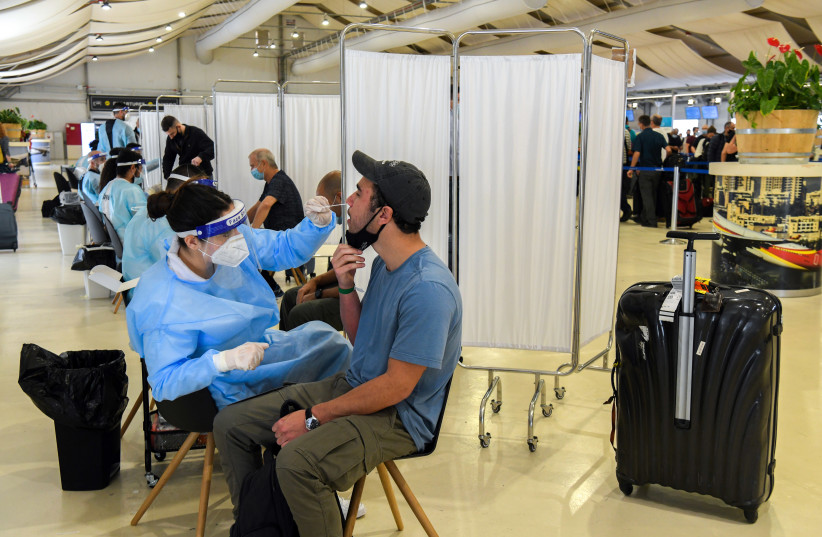For the first time since the skies were closed at the start of the coronavirus pandemic in March 2020, Israel’s borders will be fully reopened to foreigners beginning March 1.
Israel closed its borders to all foreigners on March 18, 2020, due to the fast-spreading virus, bringing international travel to an almost complete halt. Now, nearly two years later to the day, the country is preparing to fully reopen its borders.
With so many fast and frequent changes, many are unsure what this will exactly entail. Here is what we know so far:
Tourists
While tourists and foreign citizens have until now been required to present proof of vaccination or recovery upon entry, this will no longer be the case. Starting March 1, tourists of all ages will be allowed to enter Israel with or without proof of vaccination.
Instead, the only requirement they must meet will be to present a negative PCR test ahead of boarding the flight and one after landing. They will then be required to quarantine for 24 hours or until receiving the test results.
The government initially intended to allow unvaccinated people under the age of 12 into the country if they were accompanied by vaccinated parents. It ultimately decided to allow all unvaccinated individuals to enter, a move that will likely help the tourism industry.
Israeli citizens
Unvaccinated Israelis will no longer be required to isolate for 14 days upon arrival in the country, subject to a negative PCR test upon arrival. Both vaccinated and unvaccinated individuals will no longer be required by Israel to present a negative PCR or antigen test before boarding the flight, although this may still be required by the country of departure.
How do these rules differ from ones issued in the past?
While Israel has seen brief periods with more relaxed rules around international travel and tourism, never were unvaccinated tourists allowed to enter the country freely.
In May, shortly before the Delta variant hit, Israel began to tentatively reopen the tourism sector. The first stage of the plan was to allow for tourists groups to enter the country, subject to proof of vaccination and negative PCR tests.
The government then planned to allow individual tourists to enter the country. However, as Delta began to spread across the country, the second stage of the plan was delayed by one month, then two and ultimately was never implemented.
Although the skies reopened after the Delta variant faded, and the country was briefly open to vaccinated tourists before Omicron forced it closed again, the unvaccinated were still unable to enter.
What impact will the plans have on tourism?
Israel’s tourism sector has been hit hard, as workers in the industry had few opportunities for employment for two years. The entertainment sector has been allowed to remain open for the better part of a year, but the tourism industry has only had a few months of normalcy.
Now, though, workers in the industry are hopeful that things will finally take a turn for the better. According to a report published in Globes on Monday, airline ticket sales have tripled since the tentative announcement last week that Israel might reopen its borders.
According to the report, a daily average of NIS 4.63 million was paid to airlines on February 8-14, compared with an average of NIS 1.61m. per day on January 11-17.
Given that the change in entry regulations comes just ahead of Passover, when many families with children wish to come to Israel, the positive impact this decision will have on the tourism sector can be expected to be felt almost immediately.
“Last week, I recommended to Prime Minister [Naftali] Bennett that Israel allow unvaccinated children into the country to enable families to reunite, particularly ahead of the Passover holiday, which is such a crucial time for families to be together, as well as for the upcoming Purim festivities,” Diaspora Affairs Minister Nachman Shai said.
“After two years of the COVID-19 pandemic, the time has come to return to a more normal reality and to live alongside this virus, along with appropriate measures to preserve public health. The opening of Israel’s skies is great news for anyone with family in Israel who can now come and celebrate Passover and Purim together here in Israel. We’re waiting for you.”

